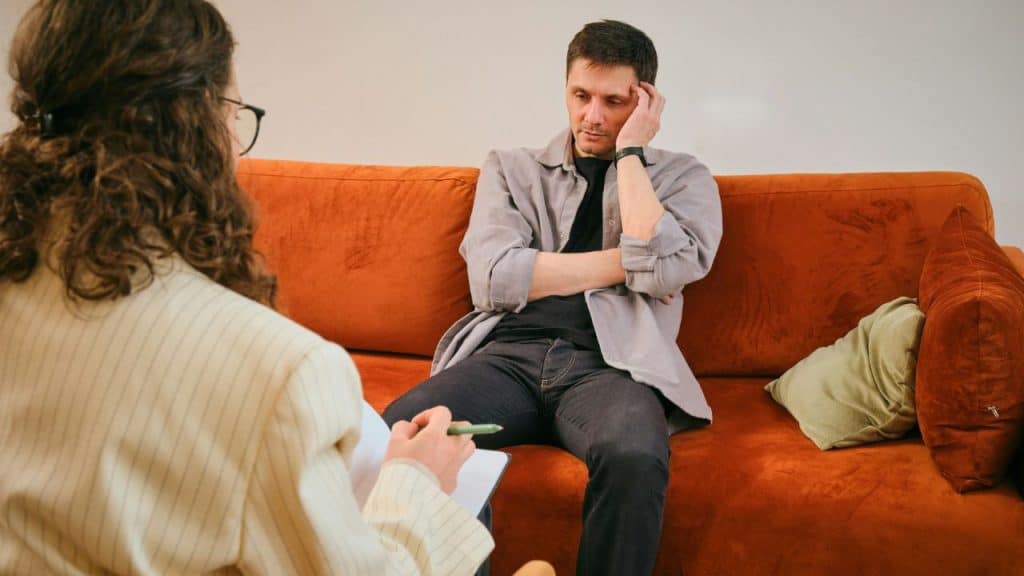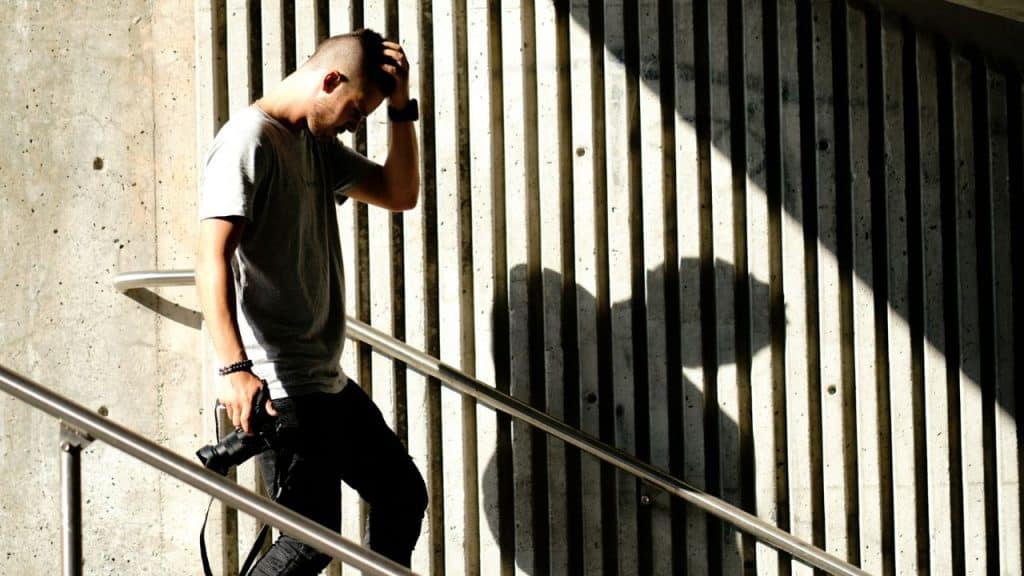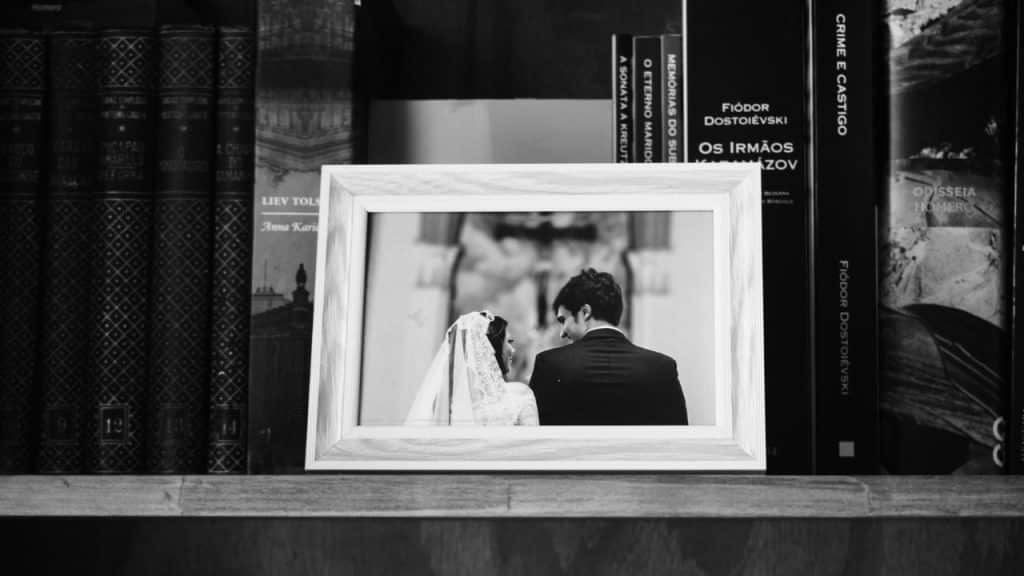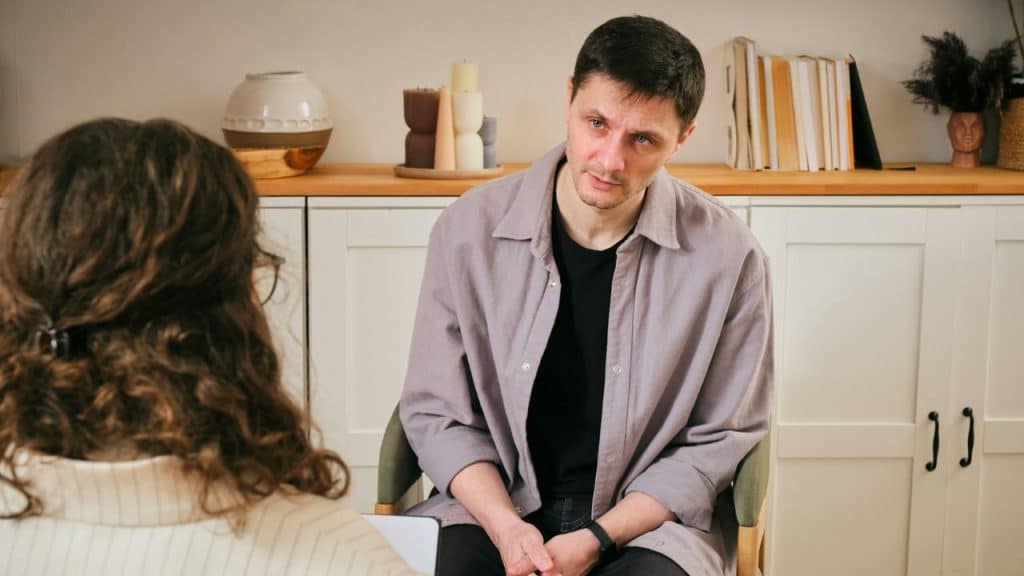
Marriage counseling has a way of dragging out the thoughts you’d never admit in front of your wife—or your therapist. You sit there nodding, pretending to process, while inside your head you’re screaming things you’ll never let slip. It’s not that you don’t care, it’s that sometimes the whole thing feels stacked against you. Every man who’s been in that chair knows the tug-of-war between saying what you feel and keeping the peace. Here are the quiet, sarcastic, and brutally honest thoughts most guys carry into those sessions but leave unspoken.
Do they expect me to cry?

Remember being told to “man up” or “suck it up”? It sticks with you. So when you’re in a room with a therapist, you might feel this weird pressure to show some big, dramatic emotion. But what if you don’t feel like crying? What if you feel angry, or numb, or just… tired? You might think you’re doing therapy all wrong, but you’re not. No one expects you to have a breakdown. The goal is to get real, not to perform. Being honest is more valuable than any tear you could shed.
Why can’t we just fix this ourselves?

You’re a problem-solver. You’re used to looking at a broken engine or a complicated spreadsheet and figuring it out. So it feels like a failure to sit on a couch and talk when you could be taking action. You probably think, “If we just communicate better, we can handle this.” Here’s the thing: You’ve been trying that, and it’s not working. A therapist isn’t just a mediator; they’re a professional who gives you new tools for a lasting solution, not just another bandage.
Am I going to be ganged up on?

Let’s be honest, this is the big one. The moment you walk in, you have this image in your head of the two of them—your wife and the therapist—teamed up against you. Every issue gets laid out on the table, and you’re the one holding the bag. A good therapist won’t let that happen. Their job is to keep things balanced and to help you both see the other’s perspective. It’s not about who’s right or wrong; it’s about understanding.
I feel like a failure for being here.

Men are taught to be self-sufficient. So needing help with your marriage can feel like a weakness. You see it as proof that you couldn’t handle the most important relationship in your life. You might feel a sense of shame, like you failed at something you should have been able to figure out on your own. But showing up to do the work isn’t a sign of weakness; it’s the ultimate display of strength. You’re fighting for something important.
What if this proves she’s right and I’m wrong?

You’re used to being in control. In therapy, it feels like you’re walking into a situation where you might lose that control. The thought of admitting you’re wrong is a tough pill to swallow. But a good counselor doesn’t work in terms of right and wrong. They work in terms of understanding. It’s not a courtroom; it’s a mutual exploration. You’re not looking for a verdict; you’re looking for a better way to live together.
Does he think I’m the problem?

You’re probably worried about being judged. You’re sitting there, trying to figure out what the counselor thinks of you. Are they judging your career? Your temperament? Do they think your wife is the sane one and you’re a lost cause? A good therapist knows that no one person is the sole problem. They are trained to see how two people interact. The focus is on the relationship, not on assigning blame.
I’m worried this is just endless talking.

You’re a man of action, not endless conversation. The thought of spending an hour rehashing the same arguments or talking about your feelings for weeks on end probably sounds like a special kind of hell. But good counseling isn’t just about talking; it’s a structured process. You’ll set actionable goals and identify patterns that you can change. It’s about getting to the root of the issue so you can move on.
I don’t know how to say what I’m really feeling.

A lot of guys weren’t taught to talk about their feelings. You might be used to burying them, and now you’re expected to dig them up and put them into nice, neat sentences. It’s a skill you might not have, and that’s okay. You don’t have to be a poet. Just be honest. Start with simple phrases like, “I feel distant,” or “I’m frustrated.” Honesty is the only language you need.
I’m afraid of opening old wounds.

Therapy can feel like an invitation to dig up old grudges and painful memories. You’re probably thinking, “Why would we want to re-live all that?” It’s a fair question. Revisiting the past isn’t about wallowing in it; it’s about understanding why certain patterns keep repeating. You need to understand the source of the fire to put it out for good.
What if this actually makes things worse?

The fear of the unknown is a real thing. You might worry that therapy will stir up so much conflict that it accelerates a breakup. That’s a valid concern. But consider this: The problems are already there. Counseling doesn’t create conflict; it exposes it in a safe space. It’s a tool to prevent resentment and a breakup, not cause it. Facing the issue is the first step toward fixing it.
I don’t want to be the reason we divorce.

Men often feel the weight of a marriage’s success on their shoulders. If counseling fails, you might feel like you’ll be blamed for everything. You probably dread the thought of being the one who “couldn’t save it.” But a relationship is a team sport. It takes two to make it work, and it takes two to break it. You’re not the sole reason for the problems, and you won’t be the sole reason for the divorce.
I wish I could just tell her what I need.

You have silent expectations. You wish she’d just know what you need—maybe a little more physical affection, more appreciation, or just some time to yourself. You probably think she should just get it, so you don’t bother to ask. Here’s a tough truth: She’s not a mind reader. If you want something, you have to say it. And counseling can give you the words to express your needs without sounding like you’re making demands.
Part of me wonders if it’s already too late.

You might have a nagging feeling that the damage is already done. You’ve let things fester for so long that you wonder if the relationship can ever be salvaged. This hopelessness can feel overwhelming. But just by showing up, you’re already taking a step toward healing. Acknowledging that fear is the first step toward letting it go. It’s only too late when you stop trying.
I’m scared of changing who I am.

Change is scary. You might think therapy is a Trojan horse designed to turn you into some soft, emotional version of yourself. You worry that you’ll lose your edge, your identity, or the things that make you you. But growth isn’t about losing yourself; it’s about adding to your skillset. You’re not being asked to be someone else. You’re just learning new ways to deal with old problems.
Will this help me figure out what I want?

Therapy can be more than just fixing a broken relationship. It can be a tool for you to figure out what you truly want and need. It can help you reconnect with the parts of yourself you’ve lost touch with. It’s a chance to stop reacting and start building a life that feels authentic. And that’s something worth fighting for.






Ask Me Anything